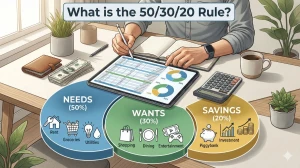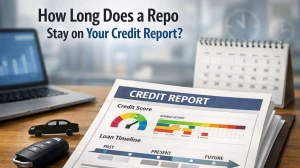
What is Exchange Rate? What are the Factors Influencing Exchange Rates?
The exchange rate is like a label that shows how much one country's money is valued compared to another country's money and they affect how much it costs to buy things from other countries, how businesses work internationally.
Published Sep 25, 2023 | Updated Sep 25, 2023 | 📖 9 min read
On This Page
- What is Exchange Rate?
- What are the Factors Influencing Exchange Rates?
- How Do Exchange Rates Work?
- Exchange Rates Impact on International Trade
- Does the Economy Affect the Rate of Currency?
- What is the Current Dollar vs Euro Exchange Rate?
- How to Convert Dollar to Euro?
- What Is a Restricted Currency?
What is Exchange Rate?
An exchange rate is like a price tag for money from different countries. It tells you how much one country's money is worth compared to another country's money. For example, if you have 100 U.S. dollars, you can exchange them for approximately 2,719.18 Turkish lira because 100 USD multiplied by 27.191822 TRY per USD equals 2,719.18 TRY. This exchange rate tells you how much Turkish lira you'll receive for 1 U.S. dollar.
Countries can decide how they want to set these exchange rates. Some let the rates change freely, like a marketplace, where they go up and down depending on supply and demand. Others fix or control the rates to keep them steady.
Exchange rates are important because they affect things like how much it costs to buy stuff from other countries, how businesses make money internationally, and even a country's economy. People and companies often trade currencies in a place called the foreign exchange market, and they use both current rates (spot exchange rate) and future rates (forward exchange rate) to do these trades. This market operates all the time, except on weekends.
What are the Factors Influencing Exchange Rates?
Here are the factors that influence exchange rates in simple terms,
- Balance of Payments: When a country buys more from other countries than it sells, it creates a trade deficit. This can make its currency less valuable because it needs to buy more foreign currency to pay for imports.
- Interest Rates: If a country's interest rates are higher than other countries, it can attract more investments. This increases demand for its currency, causing it to appreciate.
- Inflation: When a country experiences high inflation, its money loses value. As a result, its currency depreciates in comparison to currencies from countries with lower inflation rates.
- Government Policies: Government actions like spending a lot of money or printing more currency can lead to depreciation because they reduce the value of the currency. On the other hand, responsible financial policies can boost the currency's value.
- Speculation: Traders in the foreign exchange market buy and sell currencies based on their expectations. If they think a currency will go up, they buy more of it, and this can actually cause its value to rise. If they expect it to fall, they sell, causing it to drop.
- Government Intervention: Sometimes, governments step in to buy or sell their own currency in the market to influence its value. They do this to achieve economic goals or stabilize their currency.
- Economic Strength: Strong economic growth can lead to a stronger currency in the long term, as it attracts investment and shows a healthy economy.
How Do Exchange Rates Work?
Exchange rates determine how much one country's currency is worth when traded for another country's currency. It's like the price you see on items in a store, and it can change depending on various factors.
These rates are managed in a place called the foreign exchange market, where banks and financial institutions trade currencies. The exchange rate between two currencies is mainly influenced by factors like the economy, interest rates, gross domestic product, and unemployment rate in each of the countries. These factors collectively shape what's known as "market exchange rates."
In this global financial marketplace, currencies are bought and sold around the clock based on these factors. This means that exchange rates can change frequently, even hourly, with either small fluctuations or significant shifts.
There are two types of exchange rates: floating and fixed. In a floating exchange rate system, rates rise and fall due to changes in the foreign exchange market. It's similar to how prices of goods can change in a store depending on supply and demand.
On the other hand, in a fixed exchange rate system, a country links or pegs the value of its currency to another currency, like the U.S. dollar. This means they decide that their currency will always be worth a specific amount in comparison to the chosen currency, no matter what happens in the market.
Exchange rates are commonly quoted using currency acronyms, such as USD for U.S. dollars or EUR for euros. These acronyms help people quickly identify which currency is being talked about. Exchange rates also have two significant values: the "spot rate" and the "forward rate."
The spot rate is the current market price, much like the price tag on an item in a store today. The forward rate, on the other hand, is a prediction of what people expect the currency's price to be in the future. This prediction can change based on expectations, such as whether one country's interest rates are expected to rise or fall in comparison to another country's.
Exchange Rates Impact on International Trade
Exchange rates have a significant impact on international trade, and here's how it works in simple terms:
Exchange Rates and Trade Balance: When a country's exchange rate goes up, it means its currency is stronger. This can make its goods more expensive for other countries to buy, so it might sell fewer products abroad (exports decrease). On the flip side, a stronger currency can make foreign goods cheaper for people in that country to buy, so they might buy more from other places (imports increase).
Trade Balance: If a country imports (buys from other countries) more than it exports (sells to other countries), it's said to have a trade deficit. This means there's less demand for its currency in the international market, which can lead to a lower exchange rate for that currency.
Impact on Imports: When a country's currency gets stronger, it becomes cheaper for its people to buy products from other countries. So, a stronger currency often leads to an increase in imports because foreign goods become more affordable.
Impact on Exports: On the other hand, when a country's currency is strong, its goods can become more expensive for people in other countries. This can lead to a decrease in exports because foreign customers might buy less of the country's products.
Does the Economy Affect the Rate of Currency?
Yes, the economy has a big impact on the rate of a country's currency. Here's how it works in simple terms:
Merchandise Trade: When a country's currency is weak, it makes imports more expensive, while exports become cheaper for other countries to buy. This can lead to either a trade deficit (buying more than selling) or a trade surplus (selling more than buying) for the country, affecting its overall economic health.
Economic Growth: The strength of a country's currency can influence its economic growth. When a currency is strong, it can reduce net exports (exports minus imports), which are a key component of a country's Gross Domestic Product (GDP). Lower net exports can slow down economic growth.
Capital Flows: Countries with strong economies and stable currencies tend to attract foreign investment. A stable currency is important because it ensures that foreign investors won't lose a lot of money due to currency fluctuations. This investment, in turn, can boost the country's economic development.
Inflation: A weak currency can lead to "imported" inflation. If the value of a currency drops, it can make imported goods more expensive. For countries that rely heavily on imports, this can drive up overall prices and inflation.
Interest Rates: Central banks, which manage a country's money supply, often consider exchange rates when setting interest rates. For example, a strong currency can prompt a central bank to lower interest rates to make exports more competitive, while a weak currency might lead to higher interest rates to prevent inflation.
What is the Current Dollar vs Euro Exchange Rate?
As of September 25, 2023, 1 United States Dollar (USD) is equal to approximately 0.94 Euro (EUR). This means that if you were to exchange 1 U.S. dollar, you would receive about 0.94 Euros in return. Please note that exchange rates can fluctuate, so it's a good idea to check for the most up-to-date rates if you plan to make any currency exchanges or financial transactions involving different currencies.
How to Convert Dollar to Euro?
To convert your US dollars to Euros, you can follow these simple steps:
Contact a Bank or Credit Union: Get in touch with your local bank or credit union to see if they offer currency exchange services. Ask if they have Euros available or if they accept foreign currency.
Inquire About Fees: When contacting the bank or credit union, ask about any fees associated with the currency exchange. It's important to know the costs involved.
Check Exchange Rates: You can find the current exchange rates either through your bank, credit union, or by checking reputable financial websites or currency exchange rate websites. Make sure the rate offered by your bank is competitive and fair.
Arrange Pickup or Delivery: Depending on your bank's policies, you can arrange to either pick up the Euros in person or have them delivered to your location if they offer this service.
Complete the Transaction: Once you are satisfied with the exchange rate and any associated fees, you can proceed with the transaction. Your bank will provide you with the equivalent amount of Euros in exchange for your US dollars.
What Is a Restricted Currency?
A restricted currency is a currency with limited exchangeability outside of its home country. In such cases, there may be different exchange rates for transactions within the country (onshore) compared to those outside its borders (offshore).
The value of a restricted currency is typically controlled by the government, and there may be regulations and restrictions on its use in international trade or finance. China's yuan is an example of a restricted currency, with the government setting a daily midpoint value and limiting its trading range.
What is Exchange Rate - FAQs
1. What is an exchange rate?
An exchange rate is the rate at which one currency can be exchanged for another.
2. How are exchange rates determined?
Exchange rates are influenced by factors like supply and demand, economic conditions, interest rates, and government policies.
3. What is the difference between a fixed and floating exchange rate?
Fixed exchange rates are set by governments and don't change much, while floating exchange rates fluctuate based on market forces.
4. How do exchange rates impact international trade?
Exchange rates affect the cost of imports and exports, influencing a country's trade balance.
5. What is a restricted currency?
A restricted currency is one with limited exchangeability outside its home country, often controlled by the government with different rates for onshore and offshore transactions.




